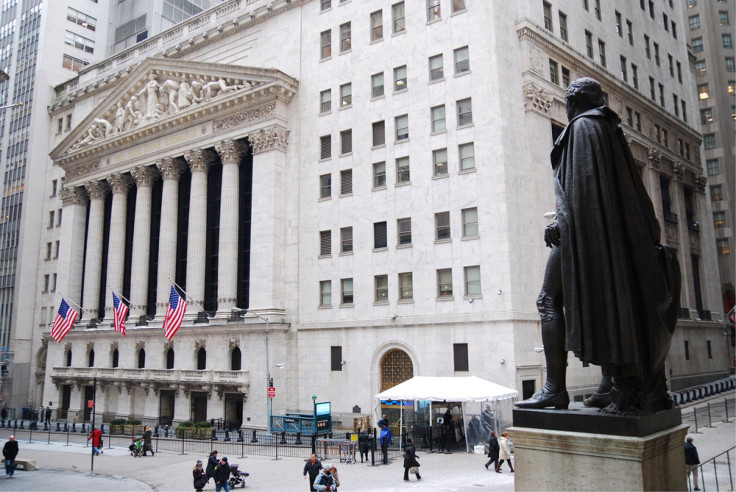Foreign Companies Return To U.S. Exchanges: IPOs 2013

Foreign companies have returned in significant numbers to the United States for their public launches in 2013, attracted by flexible U.S. exchange rules and a buoyant stock market, according to securities lawyers.
At least 28 foreign companies have raised capital in U.S. IPOs in 2013, according to data cited by New York law firm Pepper Hamilton LLP.
Companies include Germany's VOXELJET AG (NYSE:VJET), a 3D printing firm, and Spain's Abengoa SA ADR (OTCMKTS:ABGOY), an energy and telecom tech firm, which became the first Spanish firm to list in the U.S. since 2004.
Bermuda, Canada, China, Israel, the Netherlands and the UK are the most common foreing countries with companies that list in the U.S., according to a July 2013 tally by a University of Florida finance professor.
In 2012, there were 14 foreign IPOs on U.S. exchanges, or 14 percent of 100 domestic and foreign IPOs overall, according to the tally. 2013’s count of foreign IPOs to date has already doubled that.
“A listing in the U.S. capital markets is and has long been a highly coveted gold standard for any global company,” Pepper Hamilton lawyer David Russo said in an email to International Business Times.
Foreign issuers don’t have to file quarterly reports, can submit less rigorous compensation analysis documentation, and don’t have to do proxy solicitations for shareholder votes.
The 2012 JOBS Act, too, has attracted many smaller companies to the U.S., according to Russo. It has provided even greater flexibility for "emerging companies" that make less than $1 billion in annual revenues.
Such companies can submit registration documents for an IPO confidentially, as Twitter Inc. (NYSE:TWTR) did recently. Several foreign companies listing in 2013 are classified as "emerging companies," said Russo.
Because their initial filings are confidential, the public won’t know about the failed IPOs that never made it through the pipeline, too, he added. Russo said some New York law firms have paid attention this year to small penny or over-the-counter stocks, adding that he’d seen an IPO for a Prague-based crepe company that wanted to sell shares in the U.S.
But some have feared that foreign companies could more easily defraud U.S. or foreign companies compared to domestic companies, by slipping through regulatory cracks and exploiting minimum disclosure requirements.
Securities and Exchange Commission chair Mary Jo White, who took over in April, has signaled that she’d co-operate more closely with international regulators to crack down further on cross-border fraud.
The SEC declined to comment several times to IBTimes about its efforts on this front, which include the Cross-Border Working Group, formed in 2010.
In particular, concerns about accounting and audit fraud by Chinese companies listed in the U.S. have worried regulators and industry experts.
In 2011, more than 20 U.S. listed Chinese companies were delisted from exchanges, according to accounting fraud expert Brian Fox, founder of electronic audit confirmation firm Confirmation.com.
Many Chinese businesses were stuck between a rock and a hard place. While U.S. regulators demand access to their audit work papers, yielding to such requests could be considered as releasing state secrets under Chinese law. That could land Chinese executives in jail.
U.S. and Chinese governments have since made progress to ease this dilemma.
Another concern is how Chinese firms tend not to play by the same securities rules that companies from other countries must follow, Fox told IBTimes earlier this summer.
“You’ve got really the Chinese companies playing by a whole different set of standards, almost no standards, because there’s no oversight by the U.S. regulatory agencies,” he said in late July. “Which is ironic, since they’re listed on U.S. stock exchanges.”
Last week, the SEC fined a New York audit firm $75,000 for failed audits of three China-based companies that are publicly traded in the U.S. One of the Chinese companies has since been charged with financial fraud.
“We are continuing to see frauds from China with Chinese companies who are listed on US and other exchanges,” Fox wrote in an email to IBTimes last week. “This is not a shock.”
Until U.S. regulators are allowed the same rights over China-based companies listed in the U.S. as they have with firms from other countries, more fraud allegations will surface, he warned.
There were 33 Chinese companies listed on U.S. exchanges in 2010, according to the University of Florida tally, though that number fell to 3 IPOs in 2012.
At a Washington D.C. international securities law conference last week that was held by the American Bar Association (ABA), SEC officials said they would focus instead on beating back international insider trading, ABA lawyers told IBTimes.
SEC officials discussed an agreement with Australian regulators from five years ago, which recently expired, but they showed little excitement about renewing it, Baker & McKenzie LLP securities attorney Adam Farlow said.
“They did talk a lot about, the sort of intangibles, the practice in terms of dealing with other regulators, reviewing each other’s processes and procedures and getting comfortable,” he told IBTimes. “Even though, in the end, nothing specific was done under it.”
--
CORRECTION: The article originally read: "Russo said top New York law firms have paid attention this year to small penny or over-the-counter stocks, adding that he’d worked on an IPO for a Prague-based company that wanted to sell crepes in the U.S."
It has been corrected to read: "...adding that he'd seen an IPO for a Prague-based crepe company..." Russo never worked on such an IPO.
Note: Photo by Shutterstock.com.
© Copyright IBTimes 2024. All rights reserved.





















